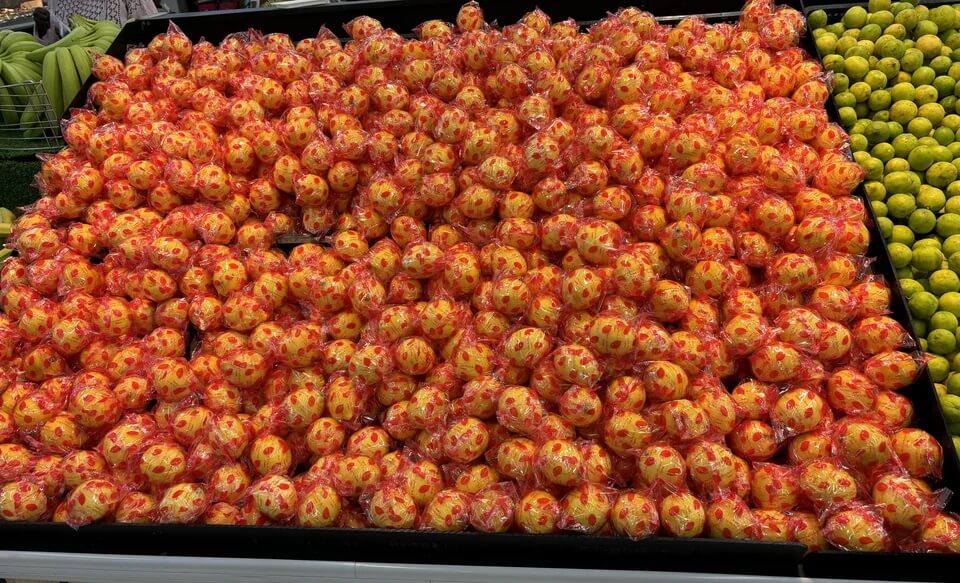If you've noticed supermarket shelves getting covered with plastic, you're not alone. There's been a major uptick in plastic packaging being used on produce, and some of it is incredibly wasteful.
One Redditor in Qatar just shared a mountain of individually wrapped lemons as an example of this disturbing trend.
What happened?
"If only Mother Nature had a way to protect the pulp inside the lemon without needing individually wrapped single use plastic covers…" the Redditor said sarcastically, attaching a photo of the problem.

In the image, hundreds of lemons are sitting in a tray waiting to be purchased. Although the bananas and limes on either side are presented normally with no packaging, the lemons are sealed inside plastic bags. The printed red logos on the packaging almost hide what's inside.
Why does the plastic packaging matter?
Wrapping the lemons in plastic takes extra time, machinery, and materials, all of which raise the provider's costs. When that happens, they raise the price of the item to make up for it — so these plastic-wrapped lemons are costing buyers more money than loose ones. Removing the packaging also adds one more step to prep work.
The plastic itself is awful for the environment. It's made from polluting oil, can't be readily recycled, and sheds microplastics as it slowly breaks down over a hundred years or more.
🗣️ When you think about a product's packaging, which of these factors is more important to you?
🔘 The way it looks 😍
🔘 The information it provides 🧐
🔘 The waste it produces 🗑️
🔘 I don't think about packaging at all 🤷
🗳️ Click your choice to see results and speak your mind
"This should be illegal in all countries of the world," one commenter insisted.
Why is the company doing this?
Sadly, manufacturers are under pressure to deliver pretty products, especially when it comes to produce. Ugly fruits and veggies are more likely to get passed over in the store, so many retailers don't want to buy them. If a sheet of plastic will prevent bruises or scratches, or if branding will make it more eye-catching, providers will embrace it.
What's the solution to excess plastic packaging?
Ideally, as many people as possible would grow their own produce, or else buy locally from small growers that don't use plastic. If that's not an option, the next best thing is to buy brands that use the least amount of packaging possible or choose recyclable options like paper.
Meanwhile, embracing imperfect fruits and veggies is smart not just for the planet, but for your wallet. Grocers like Misfits Market that sell ugly produce often offer discounts compared to your local store, even though the food is just as fresh and tasty.
Most of the features that buyers avoid in fruits and veggies — like odd shapes, mismatched sizes, and superficial marks — have nothing to do with taste, nutrition, or safety. And who knows? If more people start buying ugly produce, companies might just stop placing so much emphasis on the look of their food.
Join our free newsletter for easy tips to save more, waste less, and help yourself while helping the planet.









